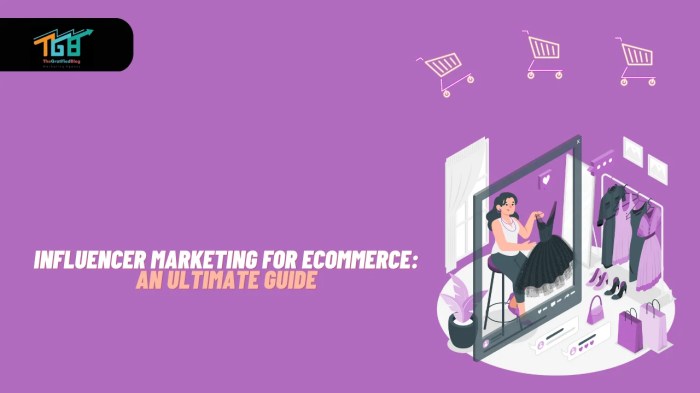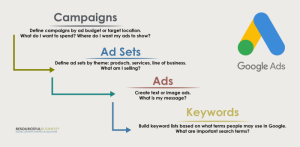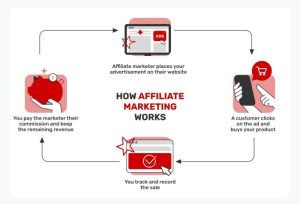
Kicking off with Influencer marketing for online stores, get ready to dive into the world of social media stars and their impact on boosting online store sales. From micro-influencers to celebrity endorsements, this topic covers it all!
Introduction to Influencer Marketing for Online Stores
Influencer marketing has become a powerful tool for online stores to promote their products and reach a larger audience. By collaborating with influencers who have a strong following on social media platforms, online stores can leverage their influence to increase brand awareness, drive traffic to their websites, and ultimately boost sales.One of the main reasons why influencer marketing is so effective for online stores is the level of trust and authenticity that influencers have built with their followers.
When an influencer recommends a product, their followers are more likely to trust their opinion and make a purchase. This can lead to higher conversion rates and a stronger ROI for online stores.
Examples of Successful Influencer Marketing Campaigns for Online Stores
- In 2019, fashion brand Revolve collaborated with various fashion influencers to promote their summer collection. The influencers created content featuring the brand’s clothing and accessories, which led to a significant increase in website traffic and sales.
- Beauty brand Glossier has also seen great success with influencer marketing. By partnering with beauty influencers to create makeup tutorials and reviews, Glossier was able to reach a wider audience and increase brand awareness.
- E-commerce giant Amazon has worked with influencers across different niches to promote their products. From tech gadgets to fashion items, influencers have helped Amazon showcase a wide range of products to their followers, driving sales and engagement.
Types of Influencers for Online Stores

When it comes to promoting online stores, choosing the right influencers can make a significant impact on the success of your marketing strategy. There are various types of influencers that businesses can collaborate with, each offering unique advantages based on their reach, engagement, and target audience.
Micro-Influencers vs. Macro-Influencers
Micro-influencers are individuals with a smaller but highly engaged following, typically ranging from 1,000 to 100,000 followers. They are often considered experts in their niche and have a loyal audience that trusts their recommendations. Working with micro-influencers can result in higher engagement rates, increased authenticity, and cost-effective partnerships for online stores.On the other hand, macro-influencers have a larger following, usually exceeding 100,000 followers, including celebrities, athletes, or well-known personalities.
While macro-influencers can reach a broader audience, they may lack the personal connection and authenticity that micro-influencers offer. Collaborating with macro-influencers can be more expensive but may lead to increased brand visibility and awareness.
Celebrity Influencers vs. Niche Influencers
Celebrity influencers are well-known public figures with a massive following across various platforms. Their endorsement can significantly boost brand recognition and reach a wide audience quickly. However, the cost of partnering with celebrity influencers can be high, and their association may not always translate into higher conversion rates for online stores.Niche influencers, on the other hand, cater to specific interests or demographics within a smaller community.
They are considered experts in their field and have a highly engaged audience that shares a common interest. Collaborating with niche influencers can result in higher conversion rates, increased credibility, and better targeting for online stores looking to reach a specific niche market.Overall, the choice between micro-influencers and macro-influencers, as well as celebrity influencers and niche influencers, depends on the goals, target audience, and budget of the online store.
By understanding the benefits of each type of influencer, businesses can create effective partnerships that drive sales and brand awareness in the competitive e-commerce landscape.
Strategies for Implementing Influencer Marketing
Influencer marketing can be a powerful tool for promoting online stores and reaching a wider audience. Implementing effective strategies is key to maximizing the impact of influencer collaborations. Here are some steps to guide you through the process:
Collaborating with Influencers
When working with influencers, it’s essential to establish a clear and mutually beneficial partnership. Follow these steps to collaborate successfully:
- Identify relevant influencers: Look for influencers whose content aligns with your brand and target audience.
- Reach out with a personalized message: Connect with influencers through direct messages or emails, clearly outlining your collaboration proposal.
- Negotiate terms and expectations: Discuss compensation, deliverables, timelines, and any other important details to ensure a smooth collaboration.
- Provide creative freedom: Allow influencers to showcase your products in their own authentic way to resonate with their followers.
- Track and measure results: Monitor the performance of the collaboration to understand its impact on your online store.
Setting Clear Goals and Expectations
Establishing clear goals and expectations is crucial when working with influencers. Here’s why it’s important:
- Define specific objectives: Identify what you aim to achieve through influencer collaborations, whether it’s increasing brand awareness, driving website traffic, or boosting sales.
- Communicate effectively: Clearly communicate your expectations, timelines, and key performance indicators to ensure both parties are aligned.
- Measure success: Set measurable goals to track the success of your influencer marketing campaigns and make data-driven decisions for future collaborations.
Creating Engaging Content with Influencers
To create compelling content that resonates with your target audience, consider the following tips:
- Focus on storytelling: Encourage influencers to tell authentic stories about your products or brand to engage their followers.
- Utilize different formats: Experiment with various content formats, such as videos, images, or blog posts, to keep the audience interested and entertained.
- Include a call to action: Prompt viewers to take action, whether it’s visiting your online store, signing up for a newsletter, or making a purchase.
- Engage with followers: Encourage influencers to interact with their audience through comments, polls, or Q&A sessions to build a sense of community.
Measuring Success in Influencer Marketing
In influencer marketing, it’s crucial to measure the success of your campaigns to understand the impact and effectiveness of your collaborations. This involves tracking key performance indicators (KPIs) and analyzing the return on investment (ROI) to ensure you are achieving your goals and maximizing your resources.
Key Performance Indicators (KPIs) for Influencer Marketing
- Engagement Rate: Measure the level of interaction and involvement with the influencer’s content, such as likes, comments, and shares.
- Reach and Impressions: Evaluate the number of people who have seen the influencer’s posts and the potential audience reached.
- Conversion Rate: Monitor the percentage of viewers who took the desired action after seeing the influencer’s content, such as making a purchase or signing up.
- Brand Sentiment: Assess the overall perception, feedback, and sentiment towards your brand after the influencer collaboration.
Tools and Methods for Tracking ROI in Influencer Marketing
- Trackable Links: Use unique URLs or promo codes provided by influencers to directly measure the traffic and conversions generated from their posts.
- Analytics Platforms: Utilize tools like Google Analytics or social media analytics to monitor the performance of influencer campaigns and analyze the impact on website traffic and sales.
- Influencer Marketing Platforms: Platforms like AspireIQ, Upfluence, or Traackr offer features to track campaign performance, ROI, and audience insights for optimized decision-making.
Case Studies of Effective ROI Measurement in Influencer Marketing
Case Study 1: Fashion Online Store
A fashion online store collaborated with a fashion influencer to promote their new collection. By using trackable links and promo codes, they were able to attribute 30% of their sales directly to the influencer campaign, exceeding their ROI expectations.
Case Study 2: Beauty Online Store
A beauty online store partnered with a beauty vlogger to showcase their skincare products. Through in-depth analytics provided by the influencer marketing platform they used, they discovered a 40% increase in website traffic and a 25% rise in conversion rates, demonstrating the effectiveness of their collaboration.
Marketing E-commerce
In the world of e-commerce, marketing plays a crucial role in driving traffic, increasing sales, and building brand awareness. Let’s explore the various marketing strategies specifically tailored for e-commerce businesses and how they can help in achieving success.
Importance of , Social Media, and Email Marketing
- (Search Engine Optimization): is essential for e-commerce websites to rank higher in search engine results pages (SERPs). By optimizing product pages, meta descriptions, and using relevant s, e-commerce stores can attract organic traffic and improve visibility.
- Social Media Marketing: Social media platforms are powerful tools for promoting e-commerce stores. By creating engaging content, running targeted ads, and collaborating with influencers, businesses can reach a wider audience and drive traffic to their online stores.
- Email Marketing: Email marketing is an effective way to nurture leads, promote products, and drive conversions. By sending personalized and relevant emails to subscribers, e-commerce businesses can increase customer engagement and retention.
Leveraging Influencer Marketing in E-commerce
Influencer marketing can be a valuable addition to a comprehensive e-commerce marketing strategy. By partnering with influencers who have a relevant audience, e-commerce stores can increase brand visibility, drive traffic, and boost sales. Collaborating with influencers to create authentic and engaging content can help in building credibility and trust with potential customers. E-commerce businesses can leverage influencer marketing to showcase their products, reach new audiences, and stay ahead of the competition in the digital marketplace.
Final Review

As we wrap up our discussion on influencer marketing for online stores, remember that partnering with the right influencers can skyrocket your brand’s visibility and sales. So, don’t miss out on the opportunity to leverage this powerful marketing strategy for your e-commerce business!
Answers to Common Questions
How do I find the right influencers for my online store?
Research your target audience and look for influencers who align with your brand values and have an engaged following in your niche.
What is the difference between micro-influencers and macro-influencers?
Micro-influencers have smaller but highly engaged audiences, while macro-influencers have larger reach but may have lower engagement rates.
How can I measure the success of my influencer marketing campaigns?
Track key performance indicators (KPIs) such as engagement rates, click-through rates, and conversions to evaluate the impact of your campaigns.





